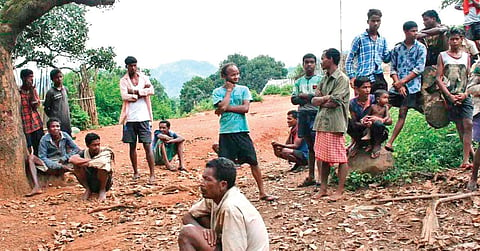

BHUBANESWAR: Holistic nutrition for tribal children remained a major challenge in the State during the pandemic. During the onset of Covid, nutritional requirements of tribal children below five years of age were adversely impacted as per the latest data released by UNICEF on Monday. Despite the provision of eggs and dry ration to families, only 40 per cent of children were reportedly consuming minimal acceptable diet in June, claimed experts from UNICEF.
However, the nutritional services picked up momentum and the situation improved after intense counselling, they added. Around 52 per cent of children were consuming the acceptable diet in September.
The data released by UNICEF claimed that young children in tribal dominated belts didn’t have sufficient access to a variety of foods. While 85 per cent consumed grains and roots, only 20 to 30 per cent consumed meat, fish, liver etc. Around 58 per cent consumed fruits and vegetables rich in Vitamin A, the data cited.
Nutrition experts feel the data is a reason to worry as tribal communities report high levels of malnutrition among children. According to National Family Health Survey 4, around 48 per cent of tribal children below the age of five are malnourished. They are vulnerable to stunting and severe acute malnutrition and often face the risk of diseases and poor growth.
According to the data, at the beginning of the pandemic, nutritional services for tribal children and mothers dropped to 68 per cent in April. While shutting down of anganwadi centres during the lockdown period temporarily disrupted nutrition services for children below five and pregnant and mothers with babies up to two years of age, the services resumed and picked up speed June onwards. In September, the services covered more than 95 per cent of children and mothers.
“Consumption of minimal acceptable diet for tribal children, comprising breastfeeding, adequate number of meals and food diversity remains a challenge,” UNICEF experts said. The experts were discussing the status of nutritional services for tribal communities during Covid-19 and focussed programmes for marginalised communities in an orientation organised by UNICEF through the virtual platform.
“With more challenges from Covid-19, we need to ensure our collective commitment especially to support tribal children survive and thrive remains strong and we continue to deliver results for marginalised communities,” said Monika Nielsen, Chief of Field Office, UNICEF Odisha.